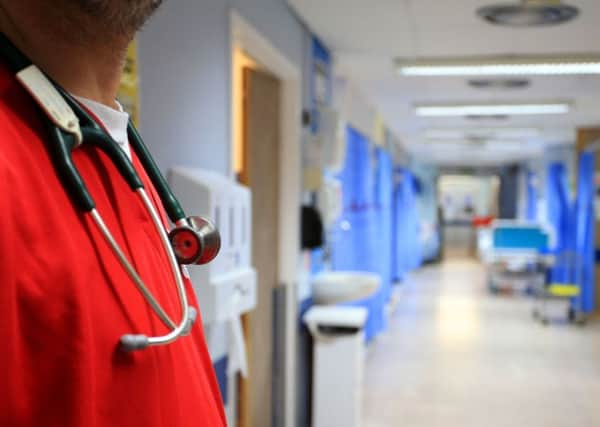CYBER ATTACK: NHS battles back after attack but operations still cancelled


Operations have been cancelled this weekend at Preston and Chorley hospitals amid the chaos and patients in Blackpool have been advised to stay away unless absolutely necessary.
But speaking after an emergency meeting on Saturday, Home Secretary Amber Rudd said the service it fighting back and most of the NHS trusts affected have now returned to normal.
Advertisement
Hide AdAdvertisement
Hide AdShe said six of the 48 trust affected are still having problems and it not yet know if services in Lancashire among those.
Ms Rudd said: “Of the 48 that have been impacted, most of them are back to normal course of business.
“So only six of them have some limits on their business.”
Experts have been working to disrupt the unprecedented d attack, which is thought to have affected industries across 100 countries, including the US and Russia.
A Nissan UK spokesman confirmed it was affected, but said there had been “no major impact”.
Advertisement
Hide AdAdvertisement
Hide AdAmid suggestions outdated software left some health service systems vulnerable after a security package was stopped in 2015, Ms Rudd said it is important to remember the NHS alone had not been affected.
She said: “If you look at who’s been impacted by this virus, it’s a huge variety across different industries and across international governments.
“This is a virus that attacked Windows platforms. The fact is the NHS has fallen victim to this.
“I don’t think it’s to do with that preparedness. There’s always more we can all do to make sure we’re secure against viruses, but I think there have already been good preparations in place by the NHS to make sure they were ready for this sort of attack.”
Advertisement
Hide AdAdvertisement
Hide AdMedical staff had reported seeing computers go down “one by one” as the attack took hold, locking machines and demanding money to release the data.
Paying tribute to those who worked to limit the impact, Ms Rudd said: “We’ve talked about how we can make sure the NHS can remain robust, that patients come first, and I’d like to commend the work that NHS staff have done to ensure that hospitals and patient surgeries are going to continue to run smoothly.
“The fact 97% of the NHS trusts and hospitals and doctors are working as normal, so the response has in fact been very good and that’s due to the good work of the staff and the resilience that was already put in place.”
The virus, called Wanna Decryptor, exploits a vulnerability in Microsoft Windows software first identified by American spies at the National Security Agency (NSA), experts have said.
Advertisement
Hide AdAdvertisement
Hide AdComputers in A&E wards, GP surgeries and other vital services were thought to have been infected with the virus.
They were infiltrated by the malicious software, while many others shut down servers as a precautionary measure.
Shadow health secretary Jonathan Ashworth, in a letter to Health Secretary Jeremy Hunt, said concerns were repeatedly flagged about outdated computer systems.
Responding earlier, Ms Rudd said: “This Government has long recognised the growing threat of cyber attack from those who wish to do us harm and has invested significantly to bolster our cyber defences.”
Advertisement
Hide AdAdvertisement
Hide AdLabour leader Jeremy Corbyn branded the attackers “a bunch of 21st century highway robbers” and expressed anger that the Government did not renew a multimillion-pound security package.
He said: “It’s unbelievably disgusting and I’ve got nothing but contempt for those people that have done it, and I’m sure all of you would share that.
“But I’m also very angry that in 2014, there was a one-year renewal of the protection system on the NHS systems which was not renewed after that and not renewed the year after that and so systems are now not upgraded and not protected.
“As a result, we’ve got this dreadful situation that NHS workers are facing today.”
Advertisement
Hide AdAdvertisement
Hide AdJust one day before Friday’s attack a doctor warned that NHS hospitals needed to be prepared for an incident precisely of the kind seen.
In an article published in the British Medical Journal, Dr Krishna Chinthapalli, a neurology registrar at the National Hospital for Neurology and Neurosurgery in London, said hospitals “will almost certainly be shut down by ransomware this year”.
A spokesman for Nissan UK said: “Like many organisations around the world, some Nissan entities were recently targeted by a ransomware attack.
“Our teams are responding accordingly and there has been no major impact on our business. We are continuing to monitor the situation.”